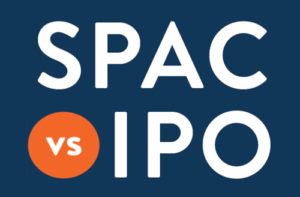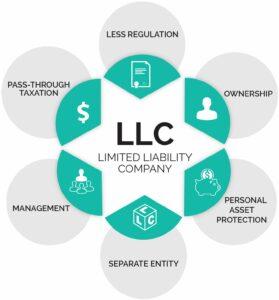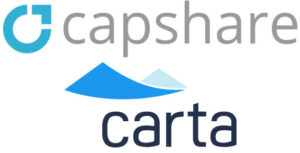Heads-Up for the Corporate Transparency Act

The phrase “Corporate Transparency Act” is quite possibly unfamiliar to you at this time
(October 2023), but if you run a business entity in the U.S., you will certainly be hearing about it in the coming months. The regulations are not fully-formed at this writing, but my goal here is just to give you the gist so you are aware of what is coming down the pike.
- The purpose of this regulation is to enable the federal government to combat money laundering and other illegal activities that use business entities as shell companies. As of now, a Certificate of Formation filed in Delaware, for example, typically contains no information about the entity’s ownership and management, so law enforcement needs to use additional tools to obtain information.
- The Act will require entities to file a form with the Treasury Department’s Financial Crimes Enforcement Network (FinCEN) containing basic identifying information (name, home address, copy of ID, etc.) about each beneficial owner of 25% of the entity and those who exercise substantial control over the entity, and then update the form when there are changes.
- The personal information on the form will be available to law enforcement and national security personnel, not to the general public.
- The filing requirement applies to all domestic and foreign entities (yes, including that single-member LLC you formed for your consulting work on the side), except for a laundry list of exempt entities that are subject to existing regulation already, such as banks and insurance companies, as well as larger companies (more than 20 full-time employees, located in the U.S. and over $5 million in annual sales).
- The filing requirement will go into effect on January 1, 2024 for newly formed entities after that date. Existing entities will have to comply sometime during that year, before January 1, 2025.
Heads-Up for the Corporate Transparency Act Read More »


 The casual reader of the business pages has seen over the past year or so many articles about SPACs, the financial structure du jour, which have actually been around for a while. (I worked on some in the ‘00s.) The acronym stands for Special (or Specified) Purpose Acquisition Company. For those of my readers that are not corporate finance professionals, the way to conceptualize a SPAC is that it’s a private equity fund that is publicly traded. In other words, investors put funds in a newly created entity via an initial public offering (IPO). The entity has no operations other than a plan to acquire an operating company with the IPO funds within the next couple of years, with a management team that is tasked with doing the acquiring. From the perspective of the operating company being acquired, it’s a way to go public, by merging with the already-public SPAC, as an alternative to a traditional IPO. (In a traditional IPO, there is no merger; rather, a bunch of new shares in the private company are sold to the public, and poof, it’s a public company.)
The casual reader of the business pages has seen over the past year or so many articles about SPACs, the financial structure du jour, which have actually been around for a while. (I worked on some in the ‘00s.) The acronym stands for Special (or Specified) Purpose Acquisition Company. For those of my readers that are not corporate finance professionals, the way to conceptualize a SPAC is that it’s a private equity fund that is publicly traded. In other words, investors put funds in a newly created entity via an initial public offering (IPO). The entity has no operations other than a plan to acquire an operating company with the IPO funds within the next couple of years, with a management team that is tasked with doing the acquiring. From the perspective of the operating company being acquired, it’s a way to go public, by merging with the already-public SPAC, as an alternative to a traditional IPO. (In a traditional IPO, there is no merger; rather, a bunch of new shares in the private company are sold to the public, and poof, it’s a public company.)
 Peter R. Orszag, writing in Bloomberg View, highlights a study of public SEC-filed Form 10-K annual reports, which found that
Peter R. Orszag, writing in Bloomberg View, highlights a study of public SEC-filed Form 10-K annual reports, which found that  Back in January, before they truly became household names, I wrote about how the publicity around
Back in January, before they truly became household names, I wrote about how the publicity around  A year or two ago, the phrase “share buybacks” was a phrase only known to those in and around the world of corporate finance. It refers to a company’s use of available cash to purchase its own shares in the open market. The effect of this is to reduce the total number of shares outstanding, which makes the remaining shares more valuable. Recently, however, share buybacks have become enmeshed in political debates as shorthand for actions taken by corporate America and encouraged by Wall Street that are not in the best interest of workers and society generally. For example, The New York Times recently reported on how
A year or two ago, the phrase “share buybacks” was a phrase only known to those in and around the world of corporate finance. It refers to a company’s use of available cash to purchase its own shares in the open market. The effect of this is to reduce the total number of shares outstanding, which makes the remaining shares more valuable. Recently, however, share buybacks have become enmeshed in political debates as shorthand for actions taken by corporate America and encouraged by Wall Street that are not in the best interest of workers and society generally. For example, The New York Times recently reported on how  In the past few years, my private company clients have been flocking to online, cloud-based cap table services, such as
In the past few years, my private company clients have been flocking to online, cloud-based cap table services, such as  William D. Cohan, writing in the New York Times’ DealBook, characterizes the
William D. Cohan, writing in the New York Times’ DealBook, characterizes the